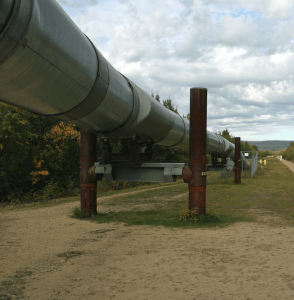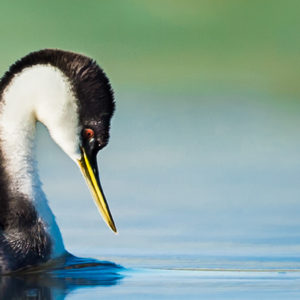Trans Mountain Hearings Draw to a Close

Stephen Hazell
Director of Conservation
and General Counsel
Last week, the highly unsatisfactory National Energy Board (NEB) hearings on the Trans Mountain Project ended with a whimper in Calgary. Unsatisfactory because Nature Canada/BC Nature had one hand tied behind our back given the NEB’s unprecedented decision to eliminate oral cross-examination from the hearings. To no avail, our Environmental Law Centre legal team objected to the NEB’s decision on grounds that it compromises the NEB’s ability to properly assess the evidence and reach sound legal conclusions.
The $5.5 billion Trans Mountain project would increase Edmonton to Vancouver pipeline capacity from 300,000 to 890,000 barrels per day, and result in oil tankers moving almost daily through the Salish Sea past critical Important Bird Areas such as Boundary Bay.
 Nature Canada/BC Nature presented 86 pages of written evidence from our three scientific experts, not to mention 31 pages of written argument summarizing our findings on the impacts of an oil tanker spills on the birds and other wildlife of the Salish Sea and criticizing Kinder-Morgan’s environmental impact statement.
Nature Canada/BC Nature presented 86 pages of written evidence from our three scientific experts, not to mention 31 pages of written argument summarizing our findings on the impacts of an oil tanker spills on the birds and other wildlife of the Salish Sea and criticizing Kinder-Morgan’s environmental impact statement.
Nature Canada welcomed with reservations the interim principles for pipeline hearings announced by Nature Resources Minister Jim Carr and Environment Minister Catherine McKenna on January 27, 2016. These principles include undertaking deeper consultations with indigenous peoples, assessing upstream greenhouse gas emissions, engaging communities through a Ministerial representative, and extending the time frames for government decisions on the Trans Mountain project. The Ministers repeatedly emphasized the importance of evidence-based decision making in the pipeline review process, but failed to reinstate the rights of intervenors to cross-examine witnesses.
In Nature Canada’s view, too many questions about the Trans Mountain Project remain unanswered and thus the NEB simply can’t properly complete the environmental assessment that the law requires.
The NEB has stated that it would be presenting its report and recommendations on the Trans Mountain Project to the federal Cabinet by May 20; Cabinet will then make the decision whether or not the Project has authority to proceed.
But don’t expect construction of the pipeline to start any time soon, even if it is approved. Do expect lawsuits from any number of intervenors ranging from municipalities in the Vancouver area, indigenous communities and nature groups.



